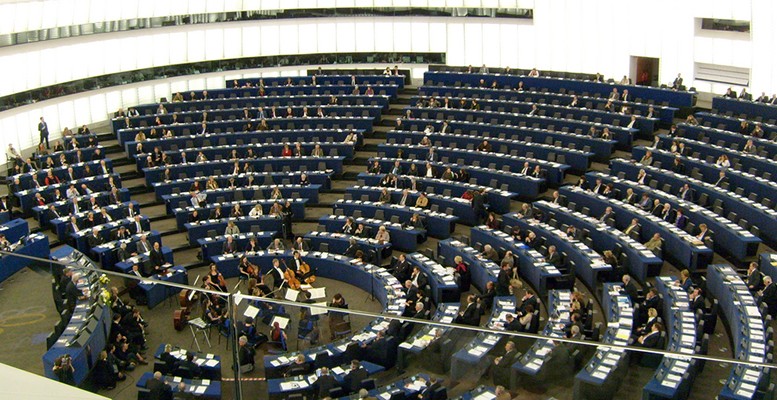Alberto Forchielli via Caixin | In primary school history class we learned that the 1815 Congress of Vienna that followed Napoleon’s defeat at Waterloo was the starting point of the European Restoration after the radical transformations brought about by the French Revolution.
The statesmen at that congress had to tackle new realities that had a primarily political and cultural nature, rather than a merely military or diplomatic dimension. In his classic study, A World Restored, Henry Kissinger made a fundamental distinction between legitimate and illegitimate international orders depending on the existence of a “common code of conduct” among nations.
Kissinger said that while international politics is often described as a system determined by the physical and material elements of power, the role played by intangibles, such as the sense of a “common purpose,” is absolutely relevant. In particular, he stated that the order of the Concert of Europe, the system in place after the congress, relied not only on the material balance of power, but also on a sense of “shared values” among European states. When that “common code of conduct” faded away, the system stopped working. Indeed, the history of the Concert of Europe, as Kissinger said, was a story of success but also of failure. The system was unable to restrain the political forces that it was designed to contain.
That political force was nationalism, which would change the political map of Europe in the late 18th century and the political map of the world in the 19th. In this new world, the dynastic principle was replaced by the idea of the nation state, which gradually began to dominate European politics. The birth of other nation states, like Germany, Romania, Serbia, Montenegro, Bulgaria and Albania, jeopardized the system created by the Congress of Vienna and ended up leading to the tragedy of World War I.
In examining the current world, we find ourselves in a very peculiar situation. While there is a global convergence in the economic area – market economies are prevailing everywhere – and there are also many common interests and examples of cooperation, countries like China, Russia and the United States do not share a common political culture. Although the absence of a common political culture, as Kissinger argued, is certainly a problem for building a legitimate world order, it’s not an insurmountable obstacle. Diplomacy still plays a role. However, a necessary condition for diplomacy is an attitude of compromise that comes to understand the point of view of other nations, especially of those countries that are considered strategic rivals.
In his most recent book, World Order, Kissinger argues that one of the major shortcomings of the current international order is the absence “of an effective mechanism for the major powers to consult and possibly cooperate on the most consequential issues.” Indeed, the results of many multilateral institutions, such as the G8 and G20, are disappointing and often amount to a mere declaration of intent, with few real practical consequences.
This is the reason I believe that a potential method of global governance could be a “quadrangle relationship” among China, the European Union, Russia and the United States. Although we should not forget the very important role played by the so-called BRICS countries, I think that a cooperative regime based on a sort of quadrangle governance would be a viable instrument for pulling various related questions together under one single political umbrella.
When celebrating the 200th anniversary of the Congress of Vienna we have to recognize and underline the European contradiction. The EU, born to overcome the tragic consequences of exasperated nationalism, is increasingly being dominated by its member states. The bloc was intended to facilitate closer cooperation among its members, based not on the strength of individual countries but on the principle of equal cooperation. However, in recent years, especially after the onset of the economic crisis, the opposite course is being followed with the return of nation states. One consequence is a shift in power to member states. Another is the creation of a hierarchy among European nations.
Meanwhile, China, Russia and the United States are far from building Kissinger’s mechanism for handling the biggest issues, even though a new approach is very much needed. Nation’s geographic borders no longer limit sovereignty, which is more diffuse and hidden than in the past. New factors must be considered: new technologies, new borderless financial realities, new networks that affect the entire planet. For these reasons, the major powers should invent and implement a fresh common code of conduct that addresses the great challenges facing us.
From this standpoint, the great powers have a number of tasks to accomplish. They must figure out how to cooperate over the Ukraine, the Islamic State and Syria so that these conflicts do not become deeply rooted like the Israeli-Palestinian question. They must also devise mechanisms for permanent cooperation and exchange of information regarding the great challenges facing mankind, such as environment degradation, migration, growing inequality, and new financial and technological networks. Ultimately, the United Nations must be reformed because we live in a world significantly different than the one in 1945. Our problems are increasingly global and the UN is the only institution in place with an international dimension.





